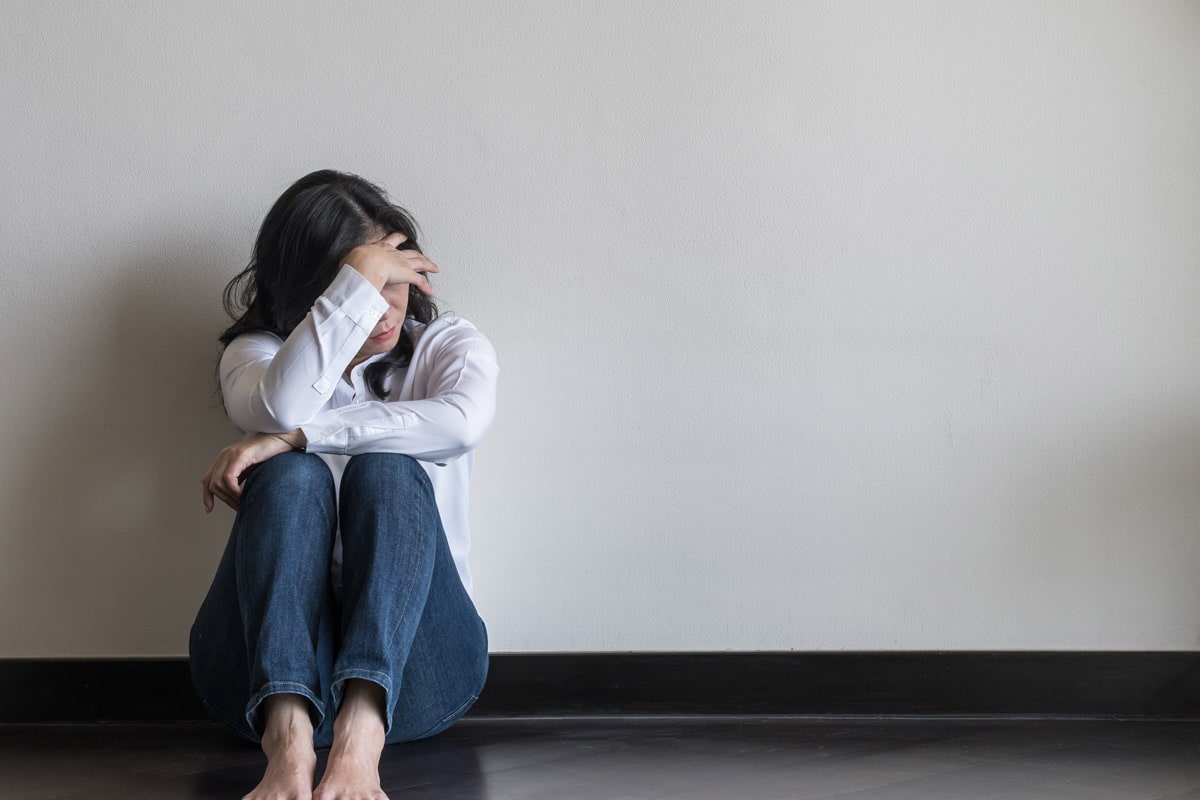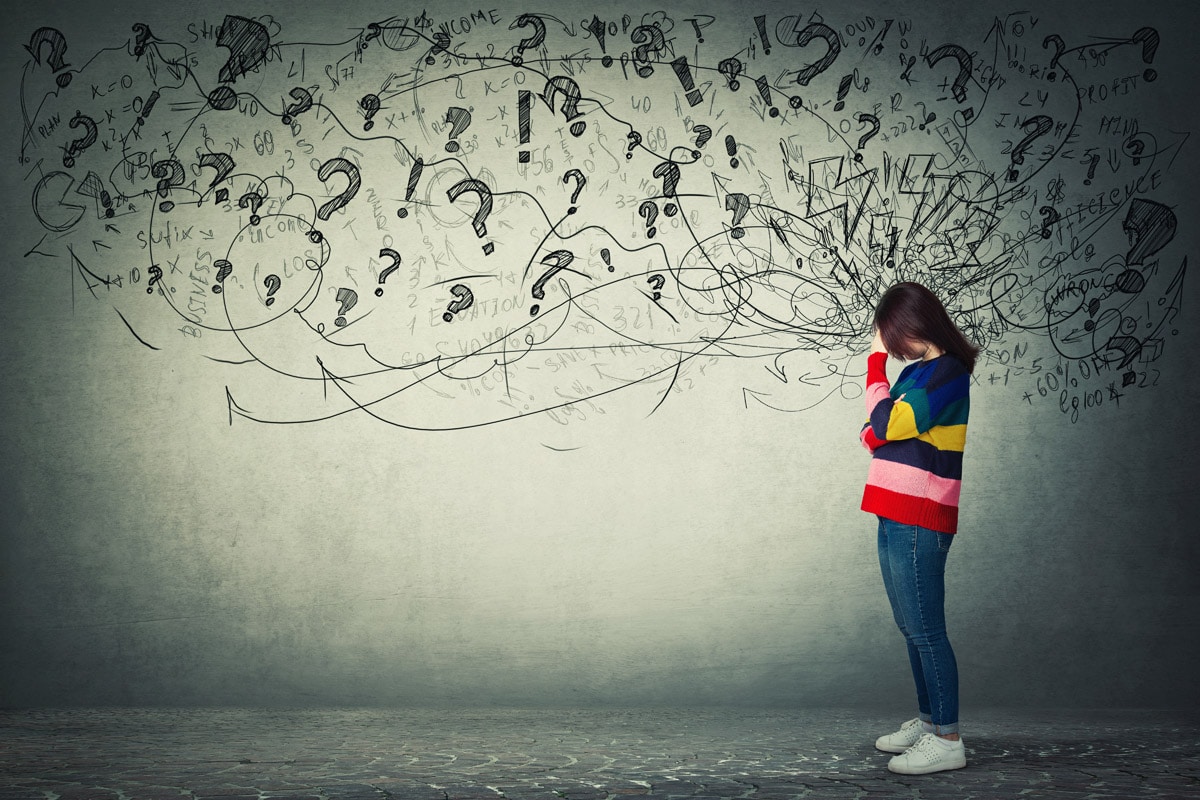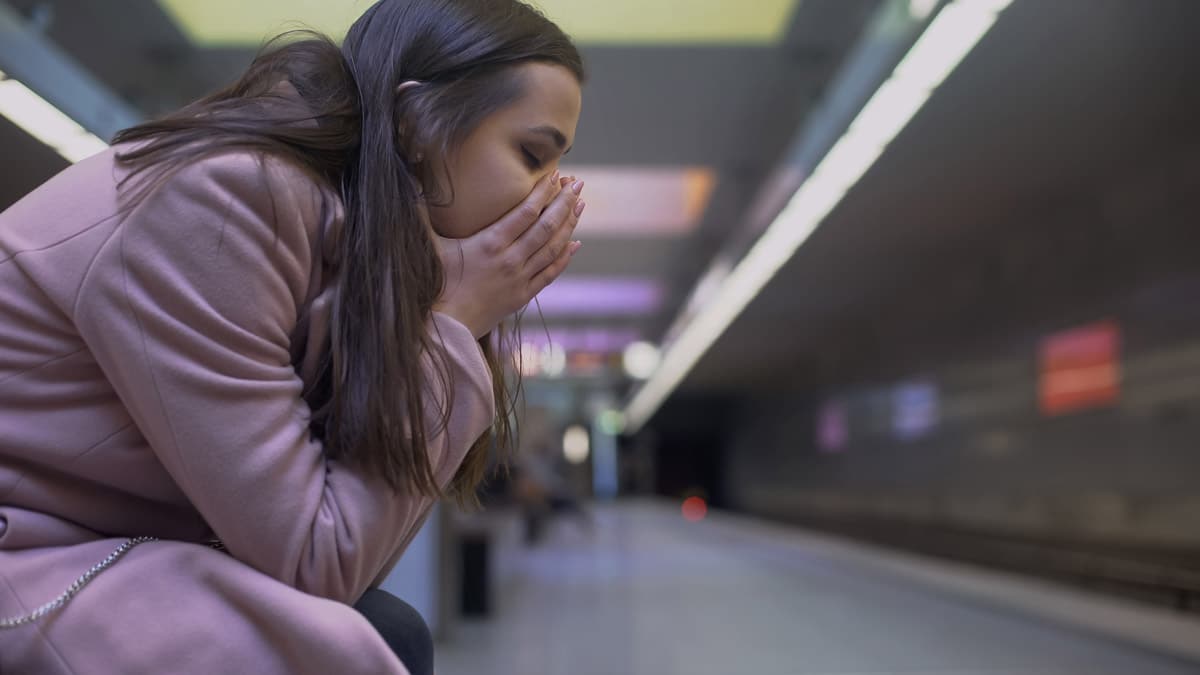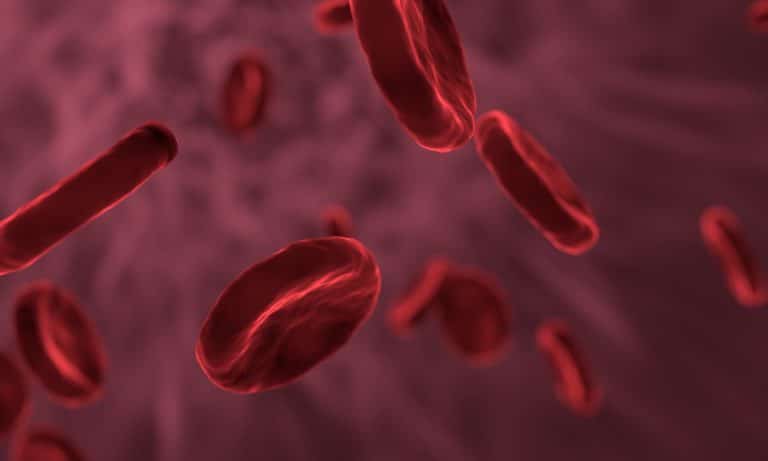Today with the stressful lifestyle, many people are experiencing anxiety at some point in their lives. Due to many personal and professional reasons, people are suffering from Anxiety disorders worldwide. Anxiety happens due to some reasons such as moving, changing jobs or having financial troubles, and other personal and professional goals. Stress from an intimate relationship, career, school, or financial may contribute significantly to anxiety disorders.
Anxiety disorders are different, as they are a group of mental illnesses. People who have worry and fear, which is overwhelming, they should consult the doctor soon. And you can go for counselling for anxiety and depression. There are many types of therapies that are available today to treat anxiety disorders. The doctor suggests you the best Therapy for Anxiety Disorders for you after diagnosis.

In This Article
- What are Anxiety Disorders
- Best Therapy for Anxiety Disorders
- Cognitive Behavioral Therapy (CBT)
- Behaviour Therapy
- Interpersonal Therapy
- Exposure Therapy
- Positive Psychotherapy (PPT)
- e-Therapy
- Dialectical Behavioral Therapy
- What Types Of Anxiety Disorders
- What to Expect From Therapy?
- What to Do to Anxiety Disorder Curable?
What are Anxiety Disorders
Anxiety is a type of an emotion which is characterized by feelings of tension, worried thoughts and physical changes like increased blood pressure etc. When a human feel anxious, then his/her body goes on high alert, searching for possible danger and activating. Anxiety can be beneficial in some situations, which alert us to dangers and help us prepare and pay attention, where Anxiety disorders differ from normal feelings of nervousness which involves anxiousness, and excessive fear or anxiety. According to the study, about 30 per cent of an adult suffering from Anxiety disorders today.
There are many causes of Anxiety Disorder such as Stress at work, Financial Stress, Brain chemistry, Environmental Stress, taking Stress from an emotional trauma such as the death of a loved one, Pressure from severe medical conditions etc. There are many types of anxiety disorders depends on the medical condition; these include Agoraphobia, Generalized anxiety disorder, Obsessive-compulsive disorder, Post-traumatic stress disorder, Selective Mutism, Specific Phobias etc.
Best Therapy for Anxiety Disorders
Depending on types of Anxiety disorder from person to person, therapies also designed as per the health condition. Anxiety and depression suggest the particular Therapy for Anxiety Disorders as per specific symptoms and diagnosis. You can find many different types of therapies which are available to treat anxiety, such as cognitive behavioural therapy (CBT), Interpersonal Therapy, Positive Psychology and exposure therapy. Every anxiety therapy may apply alone or combined with other types of treatment. And where Anxiety therapy may apply individually, or it may perform in a group of people with similar anxiety problems.
The main goal of anxiety therapy is same to lower your anxiety levels, calm your mind, and overcome your fears. Some anxiety therapies are relatively short-term, and some are lengthy therapies.
Cognitive Behavioral Therapy (CBT)
Cognitive behavioural therapy (CBT) is a type of short-term treatment which can be highly effective for anxiety disorders. This technique can help people find new ways to behave by changing their thought patterns. Cognitive behavioural therapy is the most commonly used therapy for anxiety disorders worldwide. CBT Therapy is best for generalized anxiety disorder, panic disorder, phobias, social anxiety disorder, and among many other conditions. Cognitive Behavioural Therapy consists of two main components such as
Cognitive therapy: This therapy examines how negative thoughts, which is known as cognitions,contribute to anxiety.
Behaviour therapy: where this therapy examines how you behave and react in particular situations which trigger anxiety.
Behaviour Therapy
Behavioural therapy is the most common types of therapy that treat mental health disorders. Behavioural treatment helps change potentially unhealthy behaviours of the patient. The main focus of this treatment is often on current problems and how to change them. People should go for this behavioural therapy to treat disorders such as depression, anger issues, and panic disorders. This therapy treats behavioural disorders like ADHD, oppositional defiant disorder (ODD), autism spectrum disorder (ASD) etc.
In this therapy, behavioural therapists collect data about the patient, diagnosing specific disorders, such as anger issues or depression. They noted down all the regular activities, and record client behaviour, and find out assess how these behaviours are affecting their clients professional and personal lives.
Behavioural therapy changes how the patient act. He or she learns to feel comfortable and confident because they took action. This small step against avoidance allows the patient to feel more comfortable in situations.
Interpersonal Therapy
Interpersonal psychotherapy (IPT) is a technique of treating depression which focused, evidence-based approach to treat mood disorders. IPT is a form of psychotherapy which focuses on you and your relationships with other people. The main focus of IPT is to improve the quality of patients interpersonal relationships and social functioning to help reduce their distress. IPT is an active, short-term, focused treatment for depression. This therapy improved interpersonal functioning and increased social support. Interpersonal psychotherapy (IPT) aims to change problematic interpersonal and take an essential role in the maintenance of SAD.
IPT treatment typically may consist of individual therapy sessions or this therapy performed in group work completed within 12 to 16 weeks. The therapist provides this treatment with planning, including homework, continuous assessment, and interviews etc.
Exposure Therapy
Exposure therapy is the standard treatment that encourages the systematic confrontation of feared stimuli, such as feared objects, activities, situations etc. Exposure therapy aims to reduce the patient fearful reaction to the stimulus. As the name suggests, Exposure Therapy for Anxiety exposes the patient to the situations or objects you fear. Your doctor may ask you to imagine the scary situation and or they may let you confront it in real life. This exposure therapy used alone, or in a group of people having the same health condition.
Other than these above therapies, you can also support your anxiety therapy by following some positive choices. Everything that you face the activity to your social life affects anxiety. Set your lifestyle to be a success by making a conscious decision and promote your relaxation, vitality, and a positive mental overlook in your everyday life.
Positive Psychotherapy (PPT)
Positive Psychotherapy (PPT) is a relatively latest therapeutic treat anxiety disorders. The main focus of this Positive Psychotherapy is on moving away from what is wrong or the negative aspects of an individual. Positive Psychotherapy is one of the therapeutic models that has aimed to overcome challenges, understand and recognize areas of growth.
There are many potential benefits of practicing positive psychology, such as an increase in self-esteem, improved relationships, and a more fabulous outlook on life.
e-Therapy
E-therapy is also known as online therapy which is psychological support, information, treatment and including other help provided online. Many therapist provide E-therapy, so that patient can treat by following tips and steps with their mobile phone. And also some doctor offers web seminars for online therapy. The patient doesn’t need to visit the hospital again and again for the treatment process. People who are seeking therapy but cannot afford traditional in-office visits, or would like therapy in a more convenient manner, BetterHelp offers low cost online therapy, with licensed therapists available on your schedule.
E-therapy can be a very effective way of helping the most patient who doesn’t want to visit the hospital. You can access easily in any device such as a computer, tablet or smartphone. Online therapy can help different mental health conditions, including depression, postnatal depression, panic disorder, anxiety, and obsessive-compulsive disorder etc.
Dialectical Behavioral Therapy
Dialectical behavioural therapy (DBT) is one type of cognitive behavioural therapy. Cognitive behavioural therapy tries to identify and change negative thinking patterns and pushes your mind for positive behavioural changes. Doctor suggests this DBT therapy treat suicidal and other self-destructive behaviours. This therapy is the evidence-based psychotherapy which helps evidence-based psychotherapy.
Dialectical behavioural therapy is useful in treating mood disorders, suicidal ideation, and help for change in behavioural patterns in your body, such as self-harm and substance abuse.

What Types Of Anxiety Disorders
There are many types of anxiety disorders depends on the medical condition; these include:
Agoraphobia– People who have agoraphobia have a fear of certain places or situations. And they feel trapped, powerless, or embarrassed.
Generalized anxiety disorder (GAD) – People with GAD experience constant Anxiety and getting worried about ordinary or routine activities.
Obsessive-compulsive disorder (OCD) – People with Obsessive-compulsive disorder (OCD)experience unwanted or intrusive thoughts and worries that cause Anxiety.
Post-traumatic stress disorder (PTSD) – Post-traumatic stress disorder occurs when a person experiences a traumatic event such as war, natural disaster, accident, assault etc.
Separation Anxiety Disorder- It is a childhood condition marked by Anxiety when a child is separate from their parents or guardians
Panic Disorder- Panic Disorder is also known as panic attack anxiety. People suffering from such disorder may feel feelings of looming danger, fear, or terror that peak in a matter of minutes.
Selective Mutism- This is an ongoing inability of a child or person to talk in specific situations or places.
Specific Phobias- fear of a particular object, event, or situation caused severe Anxiety when they exposed to these things.
What to Expect From Therapy?
To overcoming an anxiety disorder takes time and commitment. Therapy involves facing your fears rather than avoiding the issues, so sometimes you will feel worse instead of getting better. So it will be better for the patient to follow your therapist’s advice. And always remember that therapy for anxiety is very active in the long run. You can also support your anxiety therapy by making positive choices. So try to create positive thinking to promote vitality, relaxation, and a positive mental outlook in your everyday life.
Follow these steps to make anxiety therapy work for you.
- Learn about anxiety
- Adopt healthy lifestyle habits
- Cultivate your connections with people
- Reduce Stress in your life
What to Do to Anxiety Disorder Curable?
Anxiety can trigger your stress response by releasing a flood of chemicals and hormones. Your Anxiety trigger hormone-like adrenaline into your system. This hormone increases your pulse and breathing rate for a short time so that your brain can get more oxygen. This hormone creates an intense situation. Anxiety disorders can be debilitating, but these diseases can be managed with proper help from a medical professional.
You should consult Anxiety and Depression therapist for diagnosis. The Depression therapist may suggest a physical exam to look for signs of your Anxiety.
As per many studies, the idea that therapy can be a powerful treatment for Anxiety Disorders. With meditation, therapy can be beneficial for Anxiety depression.

What to Do To Make a Positive Mental Overlook
- Learn about Anxiety
- Adopt healthy lifestyle habits
- Do Physical activity that relieves tension and Anxiety
- Avoid people who make you anxious
- Make time for fun, playing and relaxation in your daily schedule
- Reduce Stress in your life
- Say no to extra responsibilities
- Don’t use alcohol
- Avoid stimulants such as caffeine and nicotine
What Causes of Anxiety Disorder?
There are many causes of Anxiety Disorder. People who experience a traumatic event also can develop anxiety disorders. Stress due to an illness and health condition or serious illness can cause significant worry about issues.
Some causes of anxiety disorders are:
- Stress at work
- Stress from school
- Financial Stress
- Environmental Stress
- Brain chemistry
- Stress from global occurrences or may be due to some political issues.
- Pressure from severe medical conditions
- A side effect of medication
- A symptom of a medical illness
Conclusion
Many symptoms characterize anxiety disorders. Your daily functioning, agitation, restlessness, irritability, tense muscles, trouble sleeping, fatigue, and difficulty concentrating may affect your mental health. There are many natural solutions are there you can use to overcome these disorders it while working with a licensed Anxiety and Depression therapist. Counselling is best for Anxiety and depression. You can avail online therapy & counselling also to overcome Anxiety disorders.








![Home Renovation Guide [2025]](/app/uploads/2021/04/design-hacks-1-378x300.jpg)


